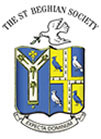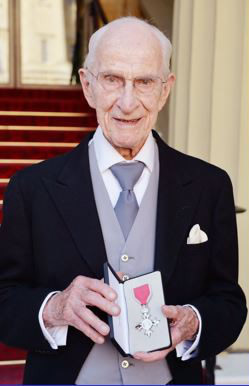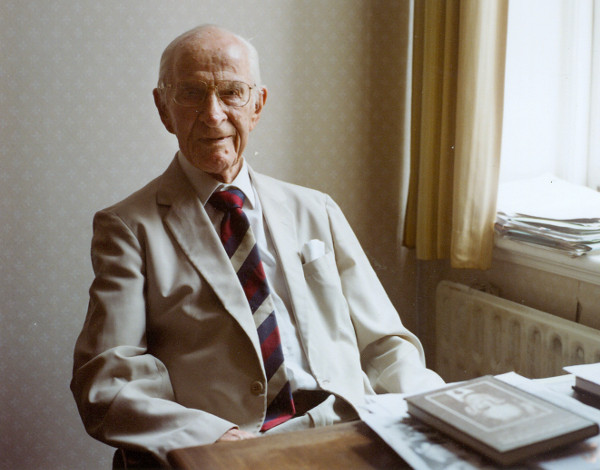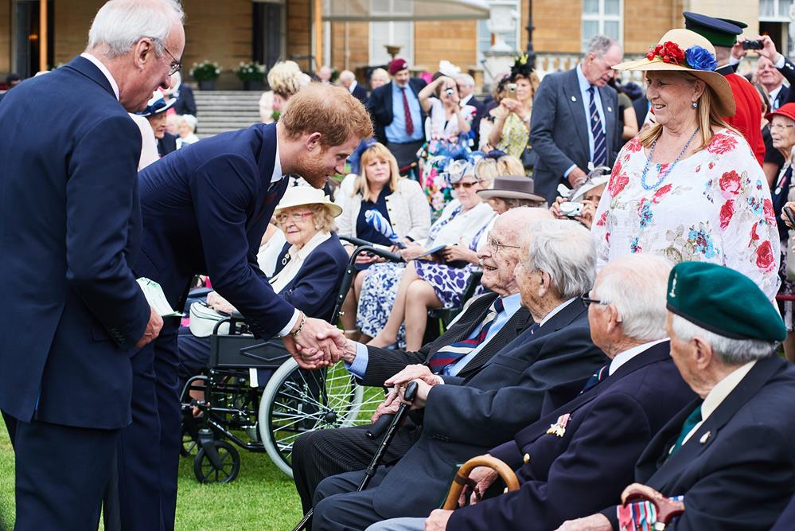|
 |
The Old St Beghian | |
| July 2020 | |||
We are sorry to report that our oldest OSB, Dr ‘Bill’ Frankland died on 2nd April in the Charterhouse, London at the age of 108 following a short illness. He had a remarkable life. In a medical career which lasted over eighty years he became a world renowned allergist, the oldest survivor of a notorious Japanese POW camp, a research colleague of Sir Alexander Fleming’s, a pioneer of the effects of pollen on human health, the oldest guest on Desert Island Discs, and in his retirement he was a consultant at Guy’s Hospital, and the recipient of an MBE, as well as other awards. Throughout his life he was a committed Christian.He was born, one of identical twins, in Sussex in 1912, his father subsequently becoming the vicar of Dacre in Cumberland. Following time at Rossall School and Carlisle Grammar school, ‘Bill’ entered St Bees School in 1926 and left in 1930 for the Queen’s College, Oxford where he had won an exhibition to read Natural Sciences, and from where he graduated in 1934 to complete his medical training as a doctor by 1938. He thoroughly enjoyed his time at St Bees – he was a talented athlete as well as being highly intelligent – and cherished a remarkable fondness for it throughout his life. As a frequent visitor and generous benefactor to the school in his later years, he was regularly seen in media interviews proudly wearing his OSB tie for all to see. We have in the school archives a tape recorded account of his time here in the 1920s.
In 1941 he married Pauline Jackson, a colleague from St Mary’s Hospital, Paddington. However, as a member of the Royal Army Medical Corps he was quickly posted, with the rank of Captain, to the Royal Warwickshire Regiment and sent to Singapore. On arrival the toss of a coin sent him to Tanglin Hospital rather than Alexandra Hospital. Thus fortuitously he avoided the massacre of the staff and patients there when it was overrun by the Japanese. There followed, ‘Three and a half years of hell’ in a Japanese prison camp from which he emerged weighing six stone. It was a period about which he remained silent for decades, choosing rather to think about his future life and career rather than dwelling on the hideousness of the immediate past. On the way back to England his luck held again when one of the three planes on which he and the men who were returning home crashed. He is on record as saying that he is a difficult man to kill!
On repatriation he returned to St Mary’s, where he became Sir Alexander Fleming’s assistant, and began his long and distinguished career in the management and treatment of allergy (the Allergy Clinic at the hospital now bears his name). His studies on pollen, for example, eventually led to the production and publication of the daily pollen count in the media (a boon for hay fever sufferers) as well as the development of allergen immunotherapy as a means of reducing susceptibility. In a private consultative capacity he once examined Saddam Hussein for a suspected allergy, but his diagnosis concluded that forty cigarettes a day was the actual cause of the problem! Nor was he reluctant to use himself as a guinea pig in the interests of his research, at one time allowing himself to be repeatedly bitten by a particular insect to discover if he could build up immunity through the frequent exposure. The culmination was anaphylactic shock and an emergency injection of adrenalin! Interestingly, like Fleming, he became very sceptical about the long term use of antibiotics, correctly foreseeing the likelihood that bacteria would adapt to nullify their beneficial effects.
During the twenty years following his retirement he worked as an unpaid consultant at Guy’s Hospital specialising in peanut allergies, and he continued to publish scholarly papers and advise allergy sufferers to the end of his centenarian years. His activities in these latter years included appearing in court cases as an expert witness and driving his car until the age of 102. He lived in an apartment in London for most of this period until confinement to a wheelchair, when he was 106, led to his moving into the Charterhouse, where he died. An excellent biography of him was published last year, ‘From Hell Island to Hay Fever’ by Paul Watkins; it is well worth reading.Dr Frankland is survived by his three daughters and one son.
Thank you to Paul Watkins for kindly allowing us to use his photographs in the Bulletin
Home
The St Beghian Society
St Bees School,
St Bees, Cumbria, CA27 0DS.
Tel: (01946) 828093 Email: osb@stbeesschool.co.uk
Web: www.st-beghian-society.co.uk
![]()


